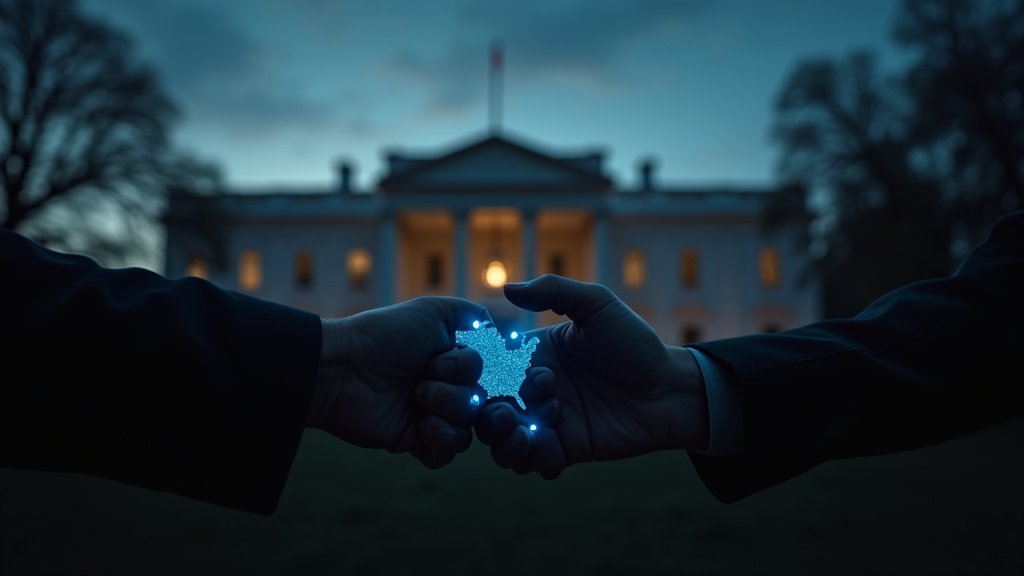In a move that signals potential openness to unconventional approaches to immigration or is simply part of a standard review process for varied proposals, the United States Department of Homeland Security (DHS) is evaluating a pitch for a reality television show where immigrants would compete to gain American citizenship. The department officially confirmed this possibility on Friday, May 16, 2025, acknowledging receipt of the unusual concept.
The Department’s Stance and Process
The confirmation from DHS on Friday, May 16, 2025, provided limited details about the nature or origin of the proposal but clarified its current status within the agency. According to a DHS spokesperson, the pitch has been received but has “not received approval or rejection by staff,” indicating that the idea is neither endorsed nor dismissed at this early stage. The department stressed that, like all submissions it receives, the proposal is subject to a “thorough vetting process.” This process typically involves multiple layers of review, considering legal implications, policy alignment, operational feasibility, and potential public impact. The statement underscores that consideration of the pitch does not equate to probable implementation but rather marks its entry into a formal evaluation pipeline.
The Proposed Concept: A Radical Departure?
While specific details of the proposed reality show format remain under wraps, the fundamental premise involves immigrants participating in a competitive environment with the ultimate prize being the attainment of U.S. citizenship. This concept represents a significant potential departure from the established, administrative, and merit-based pathways to naturalization, which typically involve stringent requirements related to residency, moral character, English language proficiency, knowledge of U.S. history and government, and passing an interview and civics test.
The idea of a competitive reality format introduces elements common to the genre, such as challenges, eliminations, and public visibility, which stand in stark contrast to the often private and bureaucratic nature of the current citizenship process. Proponents of such a concept might argue it could raise public awareness about the journey to citizenship, potentially educate viewers, and humanize immigrants by showcasing their efforts and aspirations. However, the inherent nature of reality competitions – often designed for entertainment, drama, and viewership – raises immediate questions about the appropriateness of applying this format to something as fundamental and significant as gaining citizenship in a sovereign nation.
Potential Implications and Ethical Considerations
The mere consideration of a reality show centered on citizenship competition is likely to spark robust debate among policymakers, immigration advocates, legal experts, and the public. Critics may argue that such a format risks trivializing the solemnity of the naturalization oath and the dignity of individuals seeking citizenship. Concerns could also be raised about fairness, transparency, and the potential for the show’s narrative to prioritize entertainment value over the genuine qualifications and backgrounds of participants.
Legal and ethical questions also loom large. How would participants be selected? What criteria would determine success or failure in the competition, and would these criteria align with statutory requirements for naturalization? Would participation or performance in the show supersede or supplement existing legal requirements? What are the privacy implications for participants, and how would the security concerns inherent in the immigration process be managed within a televised production? These are complex issues that would need to be thoroughly addressed during the “thorough vetting process” mentioned by DHS.
Furthermore, the concept could face scrutiny regarding its potential impact on public perception of immigrants and the immigration system. Depending on the show’s portrayal, it could either foster empathy and understanding or perpetuate stereotypes and exacerbate societal divisions.
The Path Forward Remains Uncertain
As of Friday, May 16, 2025, the proposal exists as a concept under review by the United States Department of Homeland Security. The department’s statement that the pitch has “not received approval or rejection by staff” means it has cleared an initial gate but faces significant hurdles before any potential implementation could be considered. The “thorough vetting process” will presumably delve into the numerous legal, ethical, logistical, and policy challenges presented by turning the pursuit of American citizenship into a reality television spectacle.
Whether the pitch ultimately advances beyond this vetting stage remains highly uncertain. Its consideration, however, highlights the diverse and sometimes unexpected proposals that government agencies receive and must evaluate, even those that challenge traditional notions of public service and administrative processes. The coming months may reveal whether this unprecedented concept is deemed viable or if it will be set aside in favor of more conventional approaches to immigration and citizenship.











